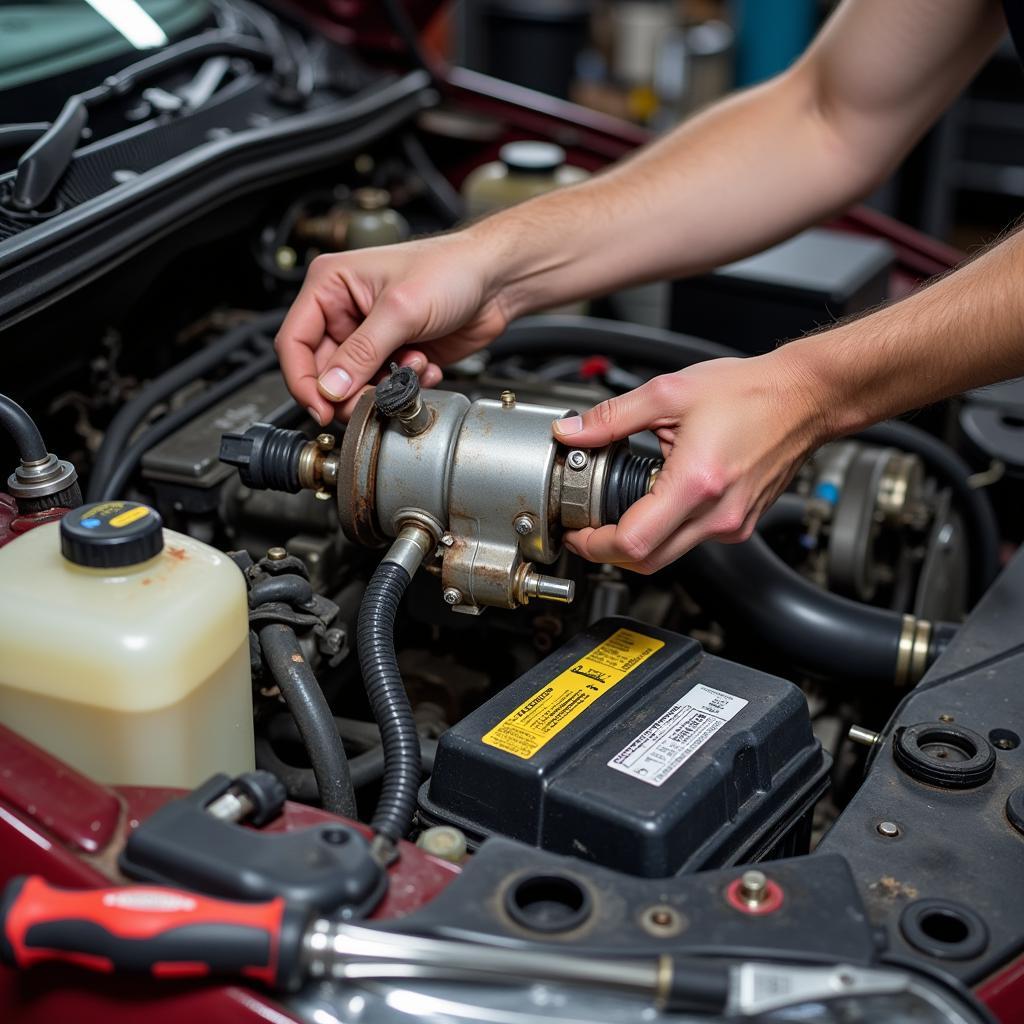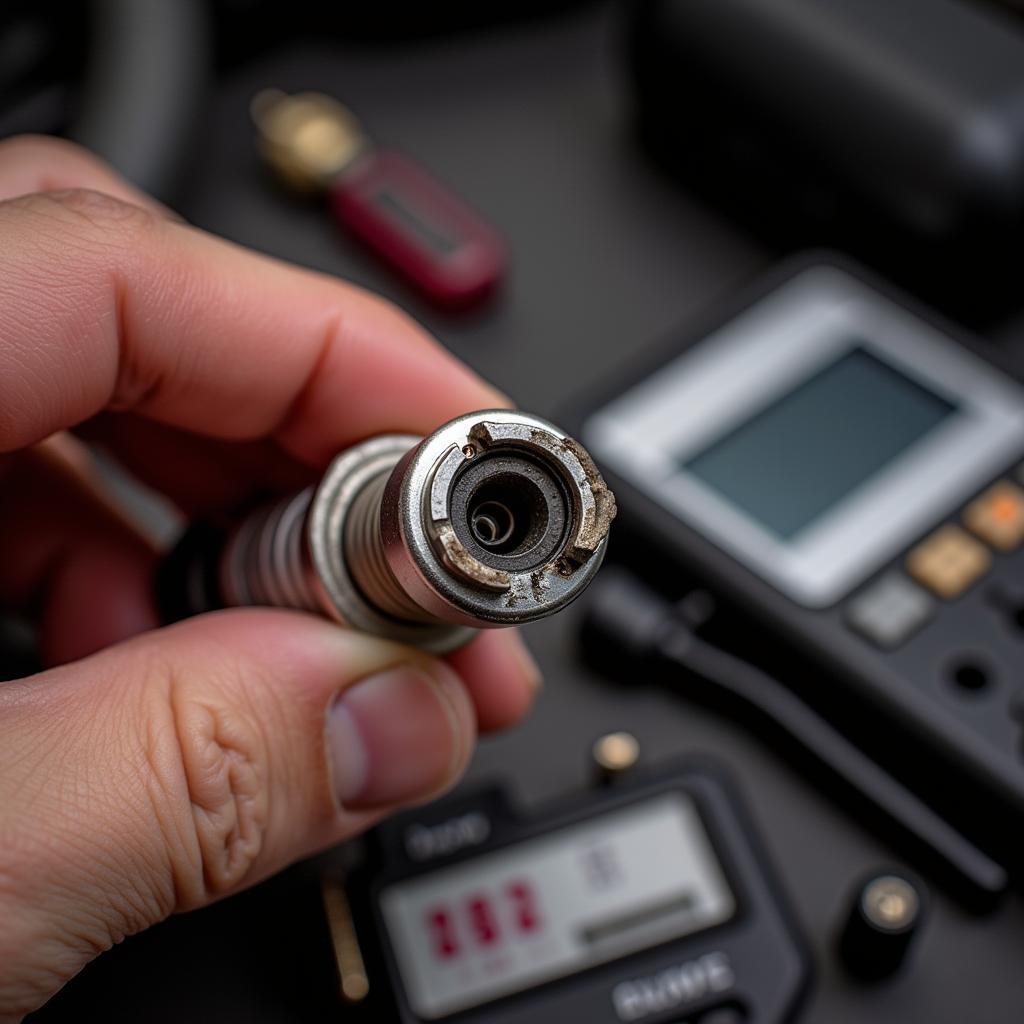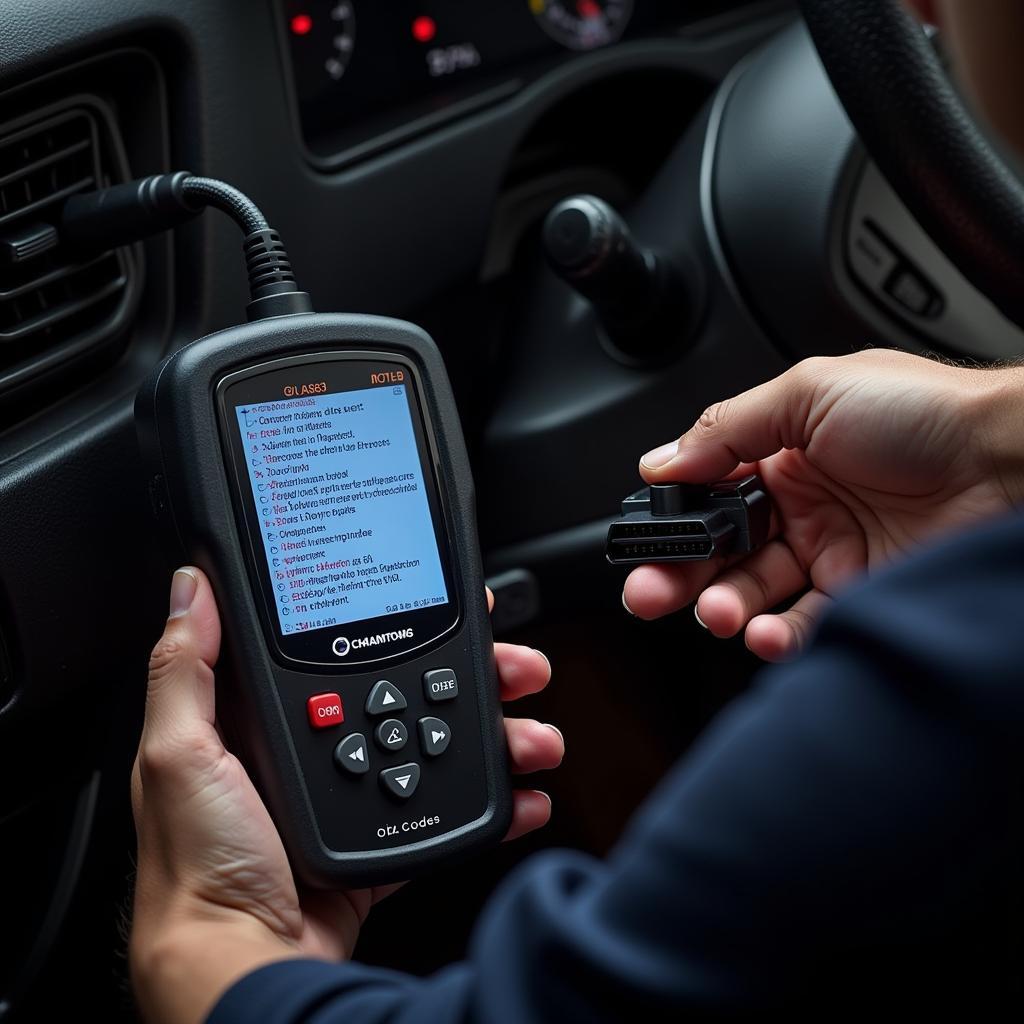Car Stalling Problems can be a frustrating and potentially dangerous experience. Understanding why your car stalls is the first step to getting it fixed and back on the road safely. This guide provides a deep dive into common causes, troubleshooting steps, and preventive maintenance to address car stalling issues.
Understanding Why Your Car Stalls
A car stalls when the engine suddenly stops running. This can happen while idling, accelerating, or decelerating, and can be caused by a variety of issues ranging from simple fixes to more complex mechanical problems. Identifying the specific circumstances under which your car stalls is crucial for effective troubleshooting.
Common Causes of Car Stalling Problems
- Fuel System Issues: Problems with the fuel pump, fuel filter, or fuel injectors can disrupt the flow of fuel to the engine, causing it to stall. A clogged fuel filter, for example, restricts fuel flow and starves the engine, particularly under load.
- Ignition System Problems: Faulty spark plugs, ignition coils, or a failing distributor can prevent the engine from igniting the fuel-air mixture, leading to stalling.
- Sensor Malfunctions: Modern cars rely on various sensors to manage engine performance. A malfunctioning crankshaft position sensor, mass airflow sensor, or oxygen sensor can send incorrect information to the engine control unit (ECU), resulting in stalling.
- Vacuum Leaks: Leaks in the vacuum hoses or intake manifold can disrupt the air-fuel mixture, affecting engine performance and potentially causing stalls.
- Alternator Issues: A failing alternator can’t provide sufficient power to keep the engine running, particularly at lower speeds or when idling, leading to stalling.
- Transmission Problems: In automatic transmission vehicles, issues with the torque converter or other transmission components can sometimes cause stalling.
 Car Stalling Due to Fuel Pump Failure
Car Stalling Due to Fuel Pump Failure
Diagnosing Car Stalling Problems: A Step-by-Step Guide
- Note the Circumstances: When does the car stall? Is it when idling, accelerating, decelerating, or after hitting a bump? This information can help pinpoint the cause.
- Check Warning Lights: Look for any illuminated warning lights on your dashboard, such as the check engine light. These lights can provide valuable clues about potential problems.
- Inspect the Fuel System: Check the fuel gauge and ensure there’s enough fuel. If the fuel level is low, add fuel and try restarting the car. Also, inspect the fuel lines for any leaks or damage.
- Check the Air Filter: A dirty air filter restricts airflow to the engine, potentially causing stalling. Inspect the air filter and replace it if it’s dirty or clogged.
- Inspect Spark Plugs and Wires: Remove the spark plugs and inspect them for signs of wear or damage. Check the spark plug wires for cracks or breaks.
- Test the Battery and Alternator: Ensure the battery is properly charged and the alternator is functioning correctly. A weak battery or failing alternator can cause stalling.
 Mechanic Checking Car Spark Plugs
Mechanic Checking Car Spark Plugs
Preventing Car Stalling Problems
Regular maintenance is key to preventing car stalling issues. Follow these tips to keep your car running smoothly:
- Regular Tune-Ups: Follow the manufacturer’s recommended maintenance schedule for tune-ups, including spark plug replacement, fuel filter changes, and other necessary services.
- Fuel System Cleaning: Periodically clean the fuel system to remove any buildup that could restrict fuel flow.
- Check and Top Off Fluids: Regularly check and top off essential fluids like engine oil, coolant, and transmission fluid.
- Inspect Belts and Hoses: Inspect belts and hoses for cracks, wear, or leaks. Replace any damaged components promptly.
“Regular maintenance is like an insurance policy for your car. It helps prevent costly repairs and keeps your car running reliably.” – John Smith, Automotive Engineer
Car Stalling When Idling: What Could Be the Cause?
If your car stalls specifically when idling, it could be due to a faulty idle air control valve, a vacuum leak, or a problem with the fuel injectors.
“Diagnosing a stalling problem requires a systematic approach. Start with the simple checks and gradually move towards more complex diagnostic procedures.” – Maria Garcia, Certified Mechanic
 Car Diagnostic Tool Showing Error Codes
Car Diagnostic Tool Showing Error Codes
Car Stalling While Accelerating: Addressing the Issue
Car stalling during acceleration can be particularly dangerous. Possible causes include a faulty fuel pump, a clogged catalytic converter, or a problem with the transmission.
Conclusion
Car stalling problems can be caused by various factors, from simple maintenance issues to more complex mechanical failures. By understanding the common causes and following the troubleshooting steps outlined in this guide, you can address many stalling issues yourself. However, for more complex problems, it’s crucial to consult with a qualified mechanic. Remember, regular maintenance is the best way to prevent car stalling and keep your vehicle running smoothly.
Need help with your car stalling problems? Contact AutoTipPro at +1 (641) 206-8880 or visit our office at 500 N St Mary’s St, San Antonio, TX 78205, United States.





Leave a Reply